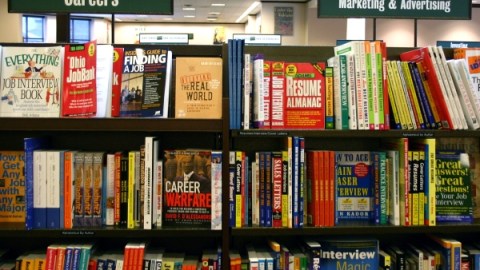Facebook Profiles are the new Resume

Today, I would like to share some thoughts on social media, particularly about Facebook with you.
I started using Facebook in late 2007 but did not get much out of it until earlier this year when I started using it as part of the social media strategy for my Deutsch Happen project. The reason why I joined Facebook was purely business driven. I did neither connect with my family nor did I look for old school friends, and I think that is the main reason why I use it differently compared to its core users. But looking at the growing importance of the network, I believe that more and more people will start using it the way I do. Targeted and very controlled.
It is an open secret that colleges, universities and employers love to scan the Facebook profiles of applicants. A recent article on Mashable gives seven reasons why recruiters prefer to connect via Facebook and not LinkedIn. Not surprisingly, from the applicant’s perspective it’s exactly the opposite as they prefer to connect via LinkedIn and thus the dedicated network for business as they want to keep their private life private which is understandable in my opinion.
BranchOut, an application for Facebook that adds a professional network structure similar to LinkedIn to the platform just launched RecruiterConnect, a tool to source job candidates on Facebook and build private talent networks.
The reason for this new move is to be found in the overall strategy of Facebook and its founder Mark Zuckerberg which essentially centers around the aim how to get people into sharing everything on the network. And as the privacy settings are still kind of confusing to many, recruiters have access to a goldmine of information. It turns them basically into a profiler.
Everybody knows that cover letters have always been polished and focused on the advantageous aspects of the applicant, and I guess the same is true for LinkedIn profiles. As this network is focused on professional connections you won’t find all the “interesting” stuff you can see on a Facebook profile. I won’t go into the old debate of sins of one’s youth but in times where companies and institutions get used to the concept of cultural fit even relatively harmless status updates might have a certain influence on decisions being made.
Two weeks ago, Leo Laporte and Tom Merritt interviewed Guy Kawasaki, former Apple evangelist, author and Venture Capitalist, for their show Triangulation on the TWiT network. The focus was on Guy’s new book “Enchantment” and during the interview they also talked about Facebook profiles and their importance for college applications. Guy’s advice was pretty straight forward: If you know that they look at it, use it as a marketing tool. Instead of posting party pictures, post pictures where you did voluntary work or from your various activities. Post status updates about what awesome stuff you are doing and so on.
Getting back to my personal use of Facebook and other networks like Twitter etc I completely agree. My credo has always been “The Internet only knows what I want it to know.”. That does not mean that what you read or see of me is another person or played. But when you decide to “live in public” you need to take care of your private life even more. With the growing importance of online reputation and influence in the digital age, I believe this behavior will become a standard in our society. Even today there are the first startups working on repairing and maintaining your good reputation online, and I think this is going to be a huge market in a couple of years when people will want to cover up sins from back in college in order to get a promotion or better job.
Now, there are of course a couple of consequences tied to this. First of all, this kind of behavior is not in the interest of Facebook as a big part of its business relies on its users that these share everything with everyone in an ideal scenario. If people decide to use the network strategical and as a resume builder, a revenue model based on social games, advertising and shopping won’t work anymore. Instead of Farmville or other games people might choose applications like Acceptly, Inigral or Hoot.Me to show their seriousness.
Secondly, there is a need to be yourself on the Internet. People want to share things with like-minded people, especially when they cannot do it in a work environment where they need to think about what is appropriate and what not. Hence the need for closed, save and anonymous places on the Internet is only going to get bigger. Examples are networks like Path or Anybeat and there is of course Second Life which already seems to experience a second spring.
Lastly, there is also the possibility for a social network that targets students who want to build their resume online, so basically a Facebook that goes all the way back to its roots on the Harvard Campus.





